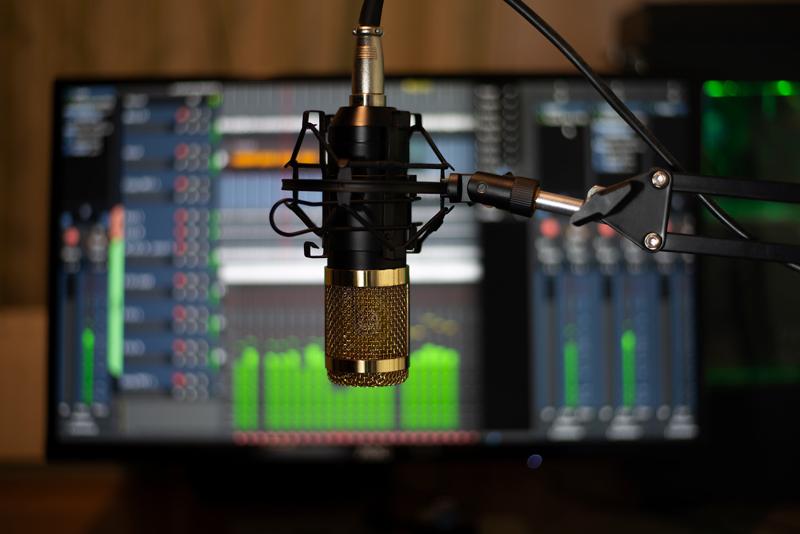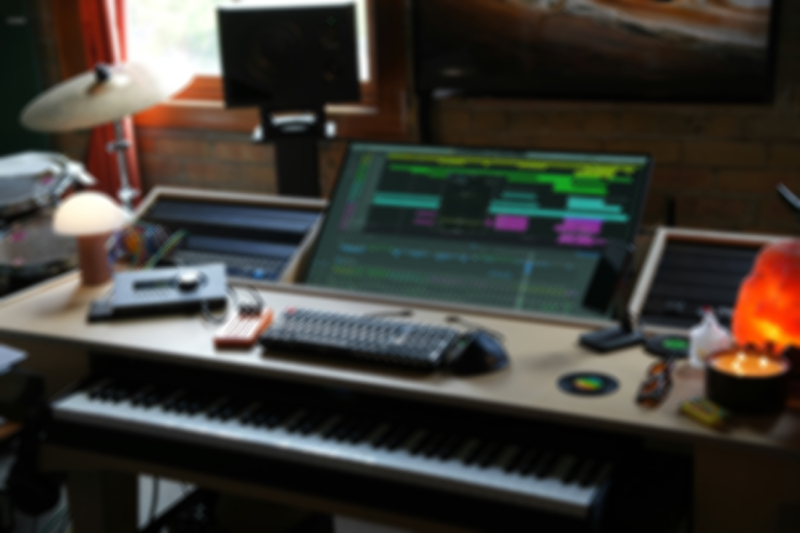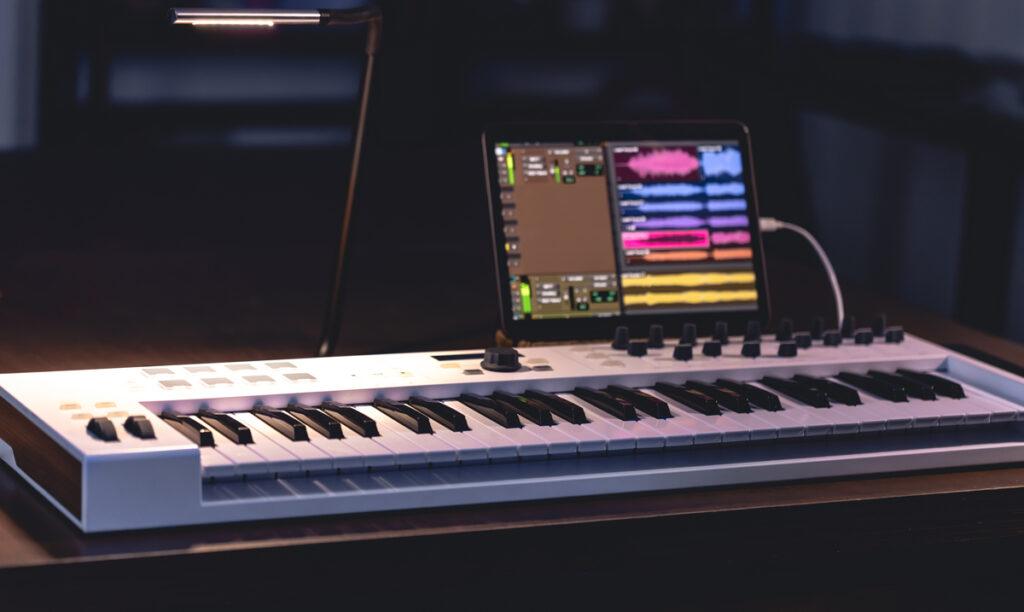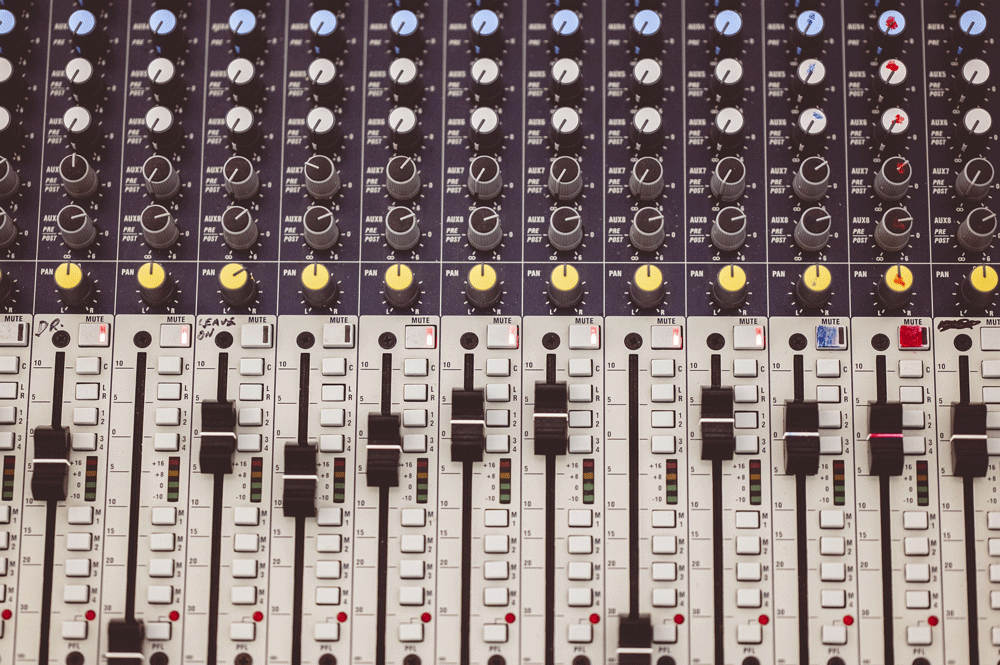The times when decent recording studios were owned only by big record labels are far gone. Now you not only can build a recording studio for yourself in your bedroom but also learn how to mix your own song. But do you need to do it all yourself, how will you benefit from it? Let’s take a look.
For more than ten years of working in mixing and mastering, we have met thousands of different artists and producers. Some of them were present in the studio when we mixed their songs. Some of them wanted to study mixing, and successfully learned the basics of how to create a mixdown.
Do artists mix their own music?
 Actually, some of the artists do mix their own songs. Historically, the majority of famous artists were present in the studios and worked together with audio engineers.
Actually, some of the artists do mix their own songs. Historically, the majority of famous artists were present in the studios and worked together with audio engineers.
Artists are the ones who make the final decisions about the recording process, how they want the final mix to sound, what kind of video they picture, and what the album cover should look like. Artists have always been creatively thinking about the whole process of their own music production and they always have the last word.
This means that artists are usually very familiar with the process and have seen it a hundred times. However, it doesn’t mean that with minimal training they can mix their own track and create mixdowns that would satisfy the industry level.
Some famous artists now, however, participate in mixing their songs quite actively. Billie Eilish, Charlie Puth, Pharrell Williams, and many others like to work on their songs themselves.
But still, unless the artist is very interested in producing and mixing, they wouldn’t do it themselves. To learn how to mix one has to spend months learning the rules and tricks which audio engineers use. The majority of artists have their songs mixed and mastered by professional audio engineers.
Can an artist create a better mix than an audio engineer?
When an artist knows exactly what sound they want to achieve for a song and knows how to reach this sound, it makes sense to assume that the artist may create a better mix. This approach saves the artist the money and the trouble of explaining to a mix engineer how exactly they want the mix to sound. And it may seem better, but it’s not that simple.
First of all, in the music industry, the term “a better mix” can be controversial. You see, there can be many different variants and many different visions regarding one song. So yes, it might be that an artist will recreate their vision of a song in the mix better. However, there can be ways to improve a mix or ways to mix each particular song that the artist didn’t think of, or doesn’t see at the moment. The best mix is sometimes not what the artist has in mind.
Then when you, as an artist, order a mix engineer’s services, you do not just order mixing. In this case, you have an opportunity to hear another professional opinion about what’s best for your song, and how to present it better in the music world. A mixing engineer with experience is a person who knows the industry trends, and what wins in the industry today, and this person can look at your mix from another, professional point of view. Also, you get simply another musician’s opinion on how to make your song sound better, from an engineer who has worked with music for many years.
Artists tend to be stuck with their demo versions of songs, it’s a known phenomenon called “demoitis.” The more you listen to your demo, the more you are blinded to its flaws. But when you bring your mix to a mix engineer, you have an opportunity to get a much better mix.
Another advantage of hiring a mix engineer is that it’s the correct approach to doing business. As an artist, you should be busy with touring, building your personal brand, doing interviews, appearing at different events, and at the same time, recording new songs. These are the tasks nobody can do for you, and they are crucial for building your career. On the other hand, mixing is what an engineer does best, and you simply cannot have enough time for mixing yourself. Instead of learning for months, or maybe years, the best mixing skills, an artist can use this time to do the artist’s job and grow their career quickly.
So hiring a mix engineer is not just about getting a better mix, it’s also about effectively building your career in the industry. The projects that earn the most in the music world are structured the same way, where different tasks like artist management, marketing, recording, mixing and mastering, and others are performed by different people. So our advice is, leave mixing and mastering to professionals if you want to build your career in the music world quickly.
However, there are cases when an artist still wants to work on mixing their songs. In this case, keep reading this article and learn some important ideas that you need to know.
Let’s suppose you really want to start mixing music. In this case, we have prepared ten tips for mixing your own song for you. They are drawn from experience and will help you to steer away from many potential traps.
Want a free test mix of your track?
We get it.
That’s why we’ll do a full hybrid (analog + digital) mix of your song —
for free.
No upfront payment. No risk.
You only pay if you’re blown away. And if you are, we’ll slash 40% off the final price.
Nobody else in mixing and mastering offers this.
Why?
Because most studios say yes to every project. We don’t. We only mix what we’re excited about — so send us your best track. If we like it, we’ll mix it like it’s going to the Grammys.
👉 Just drop your name and email to get started.
10 tips on how to mix your own music
Creating your own mix is not a quick task. We have seen artists spending days and even weeks trying to nail the perfect sound and satisfy the industry standards. And so, be careful not to dive too deep spending plenty of time and effort on mixing. Assess your progress correctly, and follow our tips.
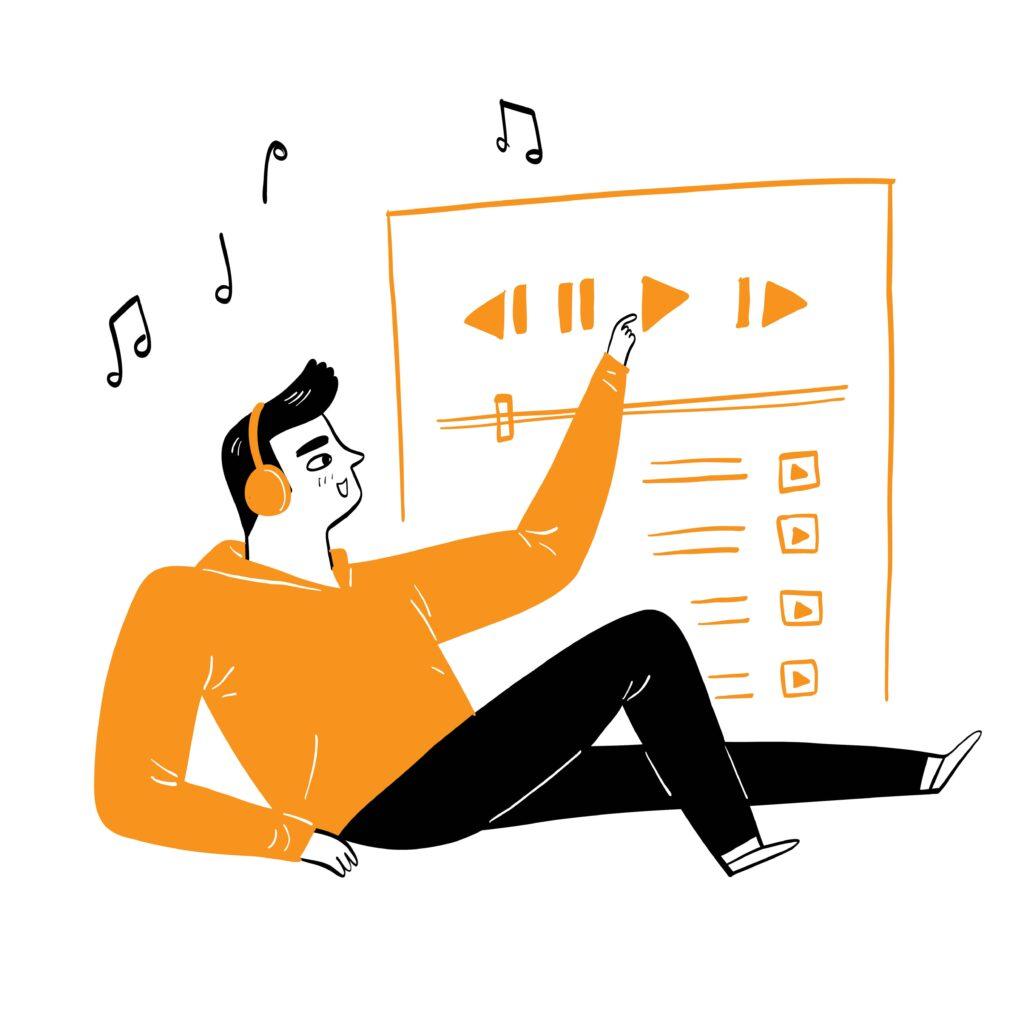 Tip #1. Always use reference audio tracks
Tip #1. Always use reference audio tracks
Using reference tracks has nothing to do with copying other people’s work. The thing is that our ears, like any instrument, should be tuned. If you are only listening to your own tracks while mixing, you will quite easily wander off the right path and create a mixdown that will sound bad compared to other modern songs.
Always use reference mixes of similar genre that resemble your desired sound. Determine what kind of sound you would like to receive and compare your work to the reference track. You can use different songs as reference mixes for different instruments or voices.
Tip #2. Mix music well-rested
You’ll have to make important mixing decisions, and they require sharp thinking and fresh ears. When you are tired and distracted, you will not be able to notice the important details and determine what effects to use to make your track sound similar to the reference.
Start in the morning when you are rested and your mind is clear. Tune yourself by listening to a few reference audio tracks and start working! If you need more than one day, take breaks. Finish your mixing session before you are too tired, rest well and sleep well before you start the next mixing session.
Tip #3. The devil in the details
Mixing may seem simple at first sight. But the more you learn, the more you discover new options and settings of the plugins, and the more you realize that there still remains a huge amount of tech knowledge that you haven’t even touched yet.
Studying mixing process, sound waves properties, plugins, and settings takes a lot of time. Are you ready to spend days, weeks, or months studying? Because this field of knowledge is huge. So, plan your studying and keep yourself from diving deep into the details.
Use the settings you know, easy plugins, standard algorithms. Proceed step by step in learning, otherwise, you are risking being caught in a huge wave of information that you can not learn in a day or two.
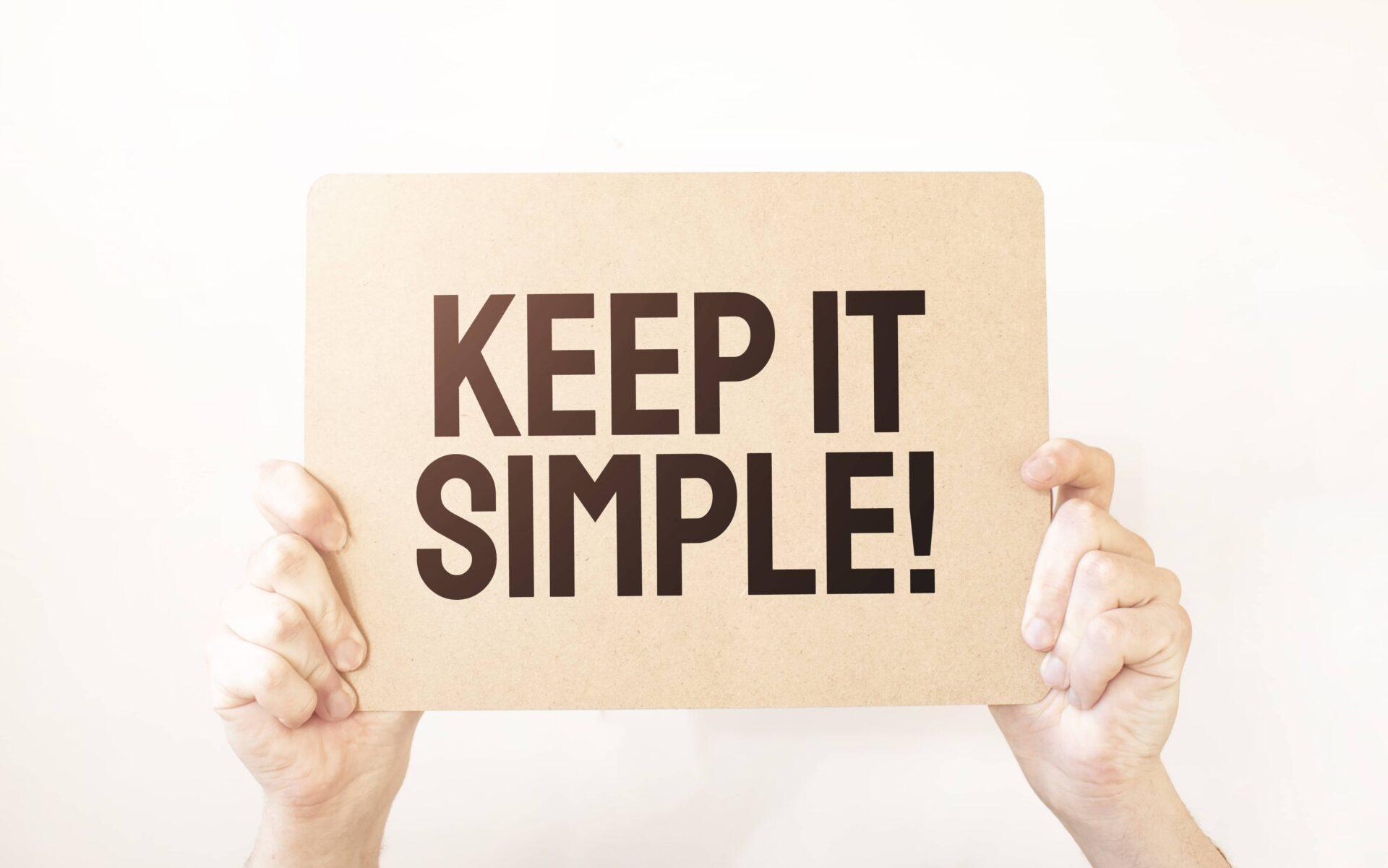 Tip #4. Keep mixing simple
Tip #4. Keep mixing simple
Make everything as simple as possible, but not simpler. This rule works perfectly for mixing as well. The common mistakes musicians make are often related to adding way too many plugins. They apply as many effects to their mix as possible, stacking one plugin on top of another, on top of another, and so on.
Overloading your mix with effects will not help create a beautiful sound, to the contrary, it will most probably ruin your song. Mixing loves planning and a clear understanding of what you want to achieve with each step. If you know for sure why you are adding equalizer, for example, and what you want to get as a result, then you don’t need to add tons of equalizer plugins to mix music, just as few as possible.
Tip #5. What is so special about your song?
Why your song is special? What differs it from other tracks? What emotions are you trying to convey with the music? Remember this when you start working on your mix. It’s tempting, having listened to reference tracks, to focus on quality, industry standards, and popular sound. This all is needed and important, but not at the first step.
The main purpose of your work at first should be to express and emphasize in your mix everything that makes your song unique. The ideas that you are conveying, and the emotions that your song is expressing. This is what you need to think about when you mix your own tracks.
Nobody sees and understands your creation as well as you do, and to no one it makes sense as much as it does to you. Use this in your favor and express all the emotions and feelings in your mix the way you see them.
Making the sound comply with the highest industry standards is maybe not easier, but a more standard task. As an amateur, you will need to show your rough mix to a professional mastering engineer anyway, because you want it to be checked.
A professional audio engineer will give their advice on what you need to change in the mix to make it better, and will master your songs according to the industry requirements.
This standardization will inevitably come later, however, at early stages, you need to concentrate on feelings and emotions that make your song different and attractive.
Tip #6. Use professional monitors
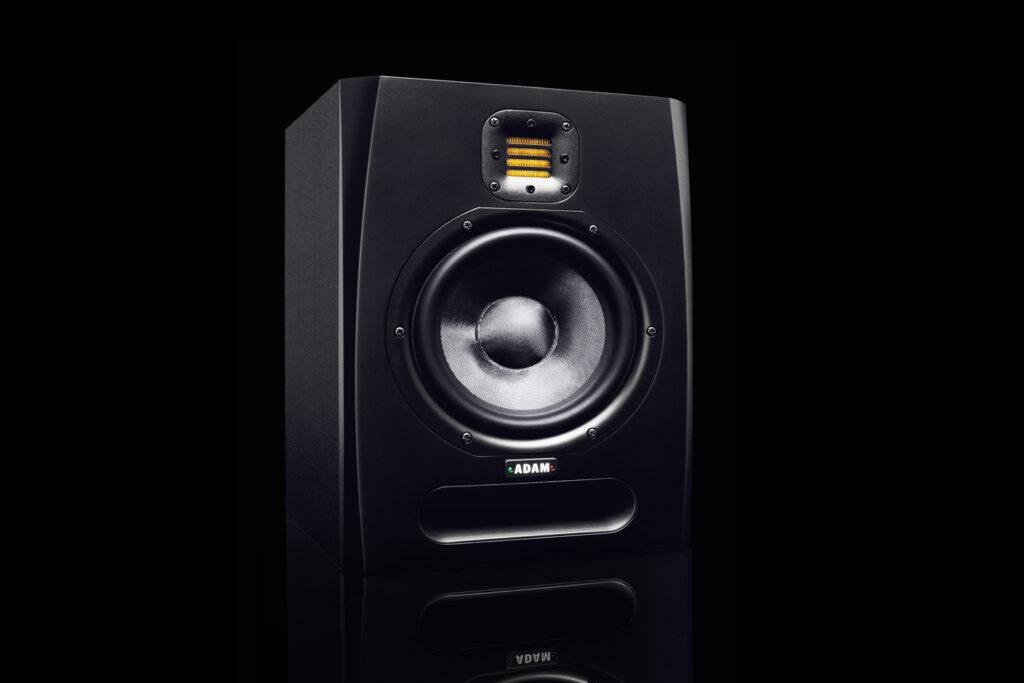 Nobody would try to mix a song using laptop speakers. Professionally sounding mixes can never be created this way. At the same time, it’s popular to mix using headphones, however, it’s also a big mistake. Using headphones, you can hear only left channel with your left ear and only right channel with your right ear.
Nobody would try to mix a song using laptop speakers. Professionally sounding mixes can never be created this way. At the same time, it’s popular to mix using headphones, however, it’s also a big mistake. Using headphones, you can hear only left channel with your left ear and only right channel with your right ear.
When you are using monitors, both of your ears can hear music coming from both speakers. The sound we hear when we are listening to stereo coming from speakers is not even close to listening to the same music in headphones. Perform sound treatment to your home studio and use monitors.
Professional sounding mixes can be created only using professional monitors. If you want to hear your song correctly and be able to make the right decisions regarding your mix, don’t mix in headphones.
Anyways, wearing headphones for a long time is not good for your hearing and not healthy for your ears.
Tip #7. Mix on medium volume
There’s several reasons why you shouldn’t mix having set the volume too high. First, of course, your ears. Listening to songs too loud will soon damage your hearing.
The second reason is that you will not be able to hear the balance well and create depth. You’ll probably mix the bass frequencies too quiet because you’ll feel there’s too much bass, and also miss slight details that need correction. Some small mistakes can hide when the sound is too loud.
Turn the volume down to get the balance right, create a better mix, and save your hearing. Keep it almost on the same level with normal human conversation.
Tip #8. Use a well-known DAW
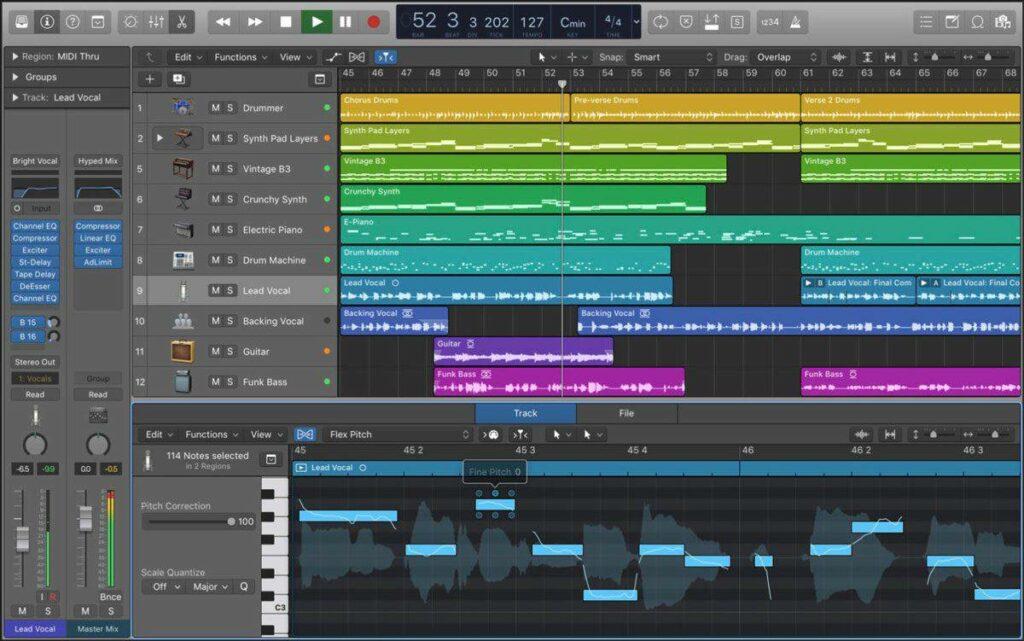 Logic, Cubase, Pro Tools, Reaper, … What’s the same about these DAWs? Right, everybody knows them! Choose for your work a DAW that is widely used and famous.
Logic, Cubase, Pro Tools, Reaper, … What’s the same about these DAWs? Right, everybody knows them! Choose for your work a DAW that is widely used and famous.
DAW’s are complicated applications and even professionals don’t know all the nuances of their operation. You’ll have just a rough idea of how to use it. Every once in a while, working on your song, you’ll come to a question you don’t know the answer to. If your DAW is famous and many people talk about it, you’ll easily find tutorials, explanations online, and engineers who can show you how to use plugins and settings.
If you choose a program that is not so popular, people will not know how to help you. Audio engineers will not be able to answer your questions. And there might be no tutorials and answers available on the internet.
If you are on a budget, there are budget versions of famous DAWs, some DAWs are less expensive than others, you’ll always be able to find a cheaper option, but settle with a well-known product.
Tip #9. Keep your project in order
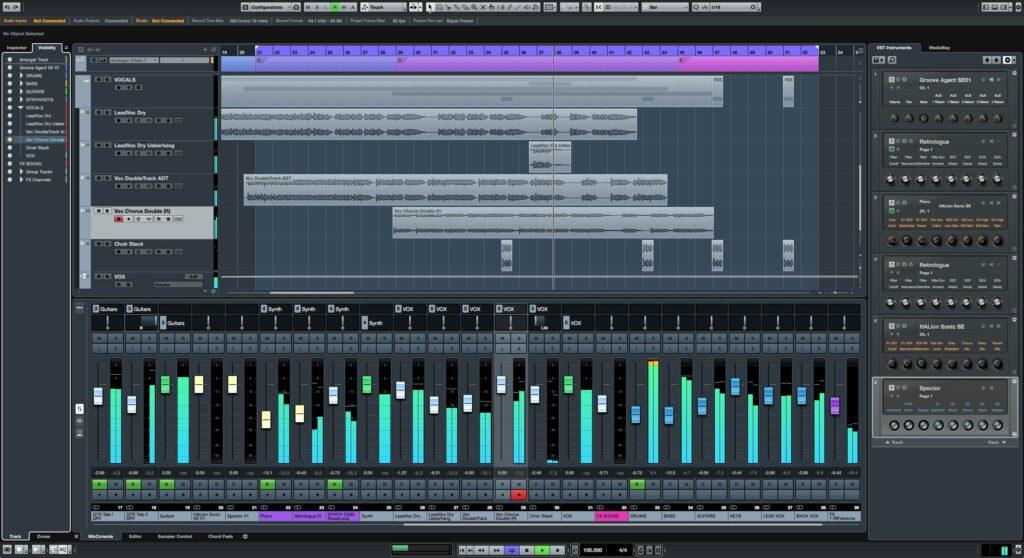 The creative process can easily develop into chaos. Your DAW session will quickly grow into a multitude of individual tracks overloading your brain and your computer’s CPU. Keep the production process well organized, make it a priority.
The creative process can easily develop into chaos. Your DAW session will quickly grow into a multitude of individual tracks overloading your brain and your computer’s CPU. Keep the production process well organized, make it a priority.
Name your audio files clearly, so that you’ll instantly know which one is your instrumental track, which one is the bass guitar, and so on.
When you have written a song, export your multitrack and start a new project for mixing.
Tip #10. How to decide if you should mix your songs
If in doubt, don’t do it. Seriously, mixing your own song is not a simple process. We’ve seen artists who worked weeks on mixing one song, and when they finally send it to an audio engineer, they receive only more advice for corrections. You need to know a lot of mixing rules to be able to create an industry-level mix.
Is it efficient for you to spend weeks mixing a song, and learning how to do it? If you are an artist and feel that mixing is not your cup of tea, it’s probably isn’t. All those technical details and physics of sound waves can drive artists crazy, but a good audio engineer studies them diligently and uses them in work.
We live in a world where everything is better done by professionals. Chefs, designers, architects, software engineers each do their work effectively. Artists can produce their songs, shoot videos, mix and master, do album cover design, and other things, but will it all be professional and of high quality? Definitely not.
It saves a lot of artists’ time to order mixing from professionals, and it helps them grow careers effectively.
Start learning how to mix only if you like it so much that you can’t help making music and mixing your own songs. Then it’s probably the right thing to do for you.
After the mixdown is ready, show your creation to an experienced mastering engineer, to help your song reach the needed music industry qualities of sound. Ask for advice on how to make your mix better. Give your audio engineer more possibility to improve the mix by sending stems for stem mastering.
If you choose to trust a professional with mixing your song
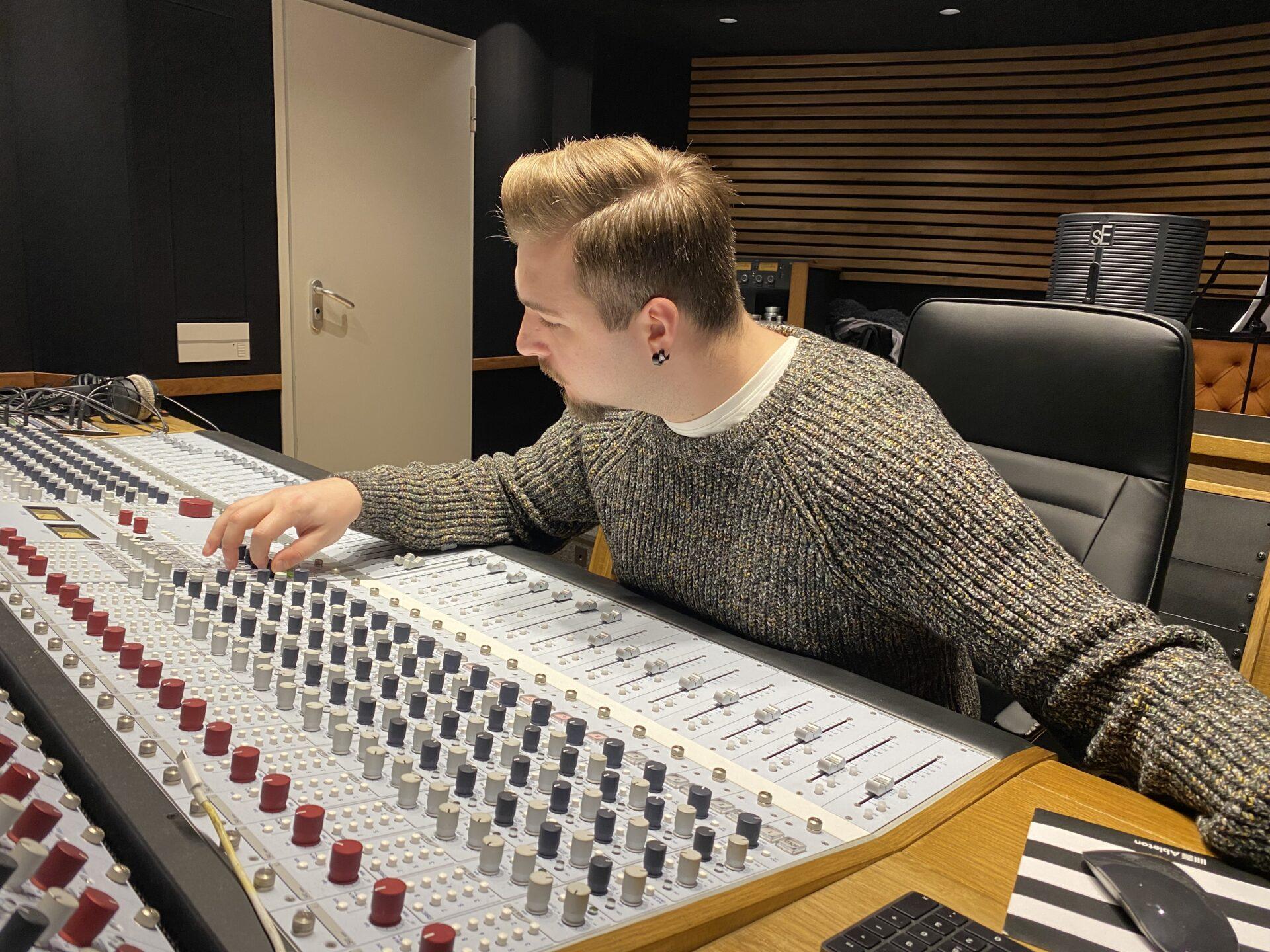 If you decide to save time and trust a professional audio engineer, you’ll receive an industry-level mixdown for your future hit. It’s a smart way to grow your career.
If you decide to save time and trust a professional audio engineer, you’ll receive an industry-level mixdown for your future hit. It’s a smart way to grow your career.
Our Major Mixing team can mix your song quickly and in less than three days you’ll receive a perfect mixdown.
We are sure we can create the mix you need because each of us has worked on big music industry projects, and knows mixing from many years of experience. We can quickly create the highest quality sound for you, do mastering as well, and your hit will be ready for release.
Contact us now for mixing and mastering services, place your order or write us a message. We’ll always be happy to help!






